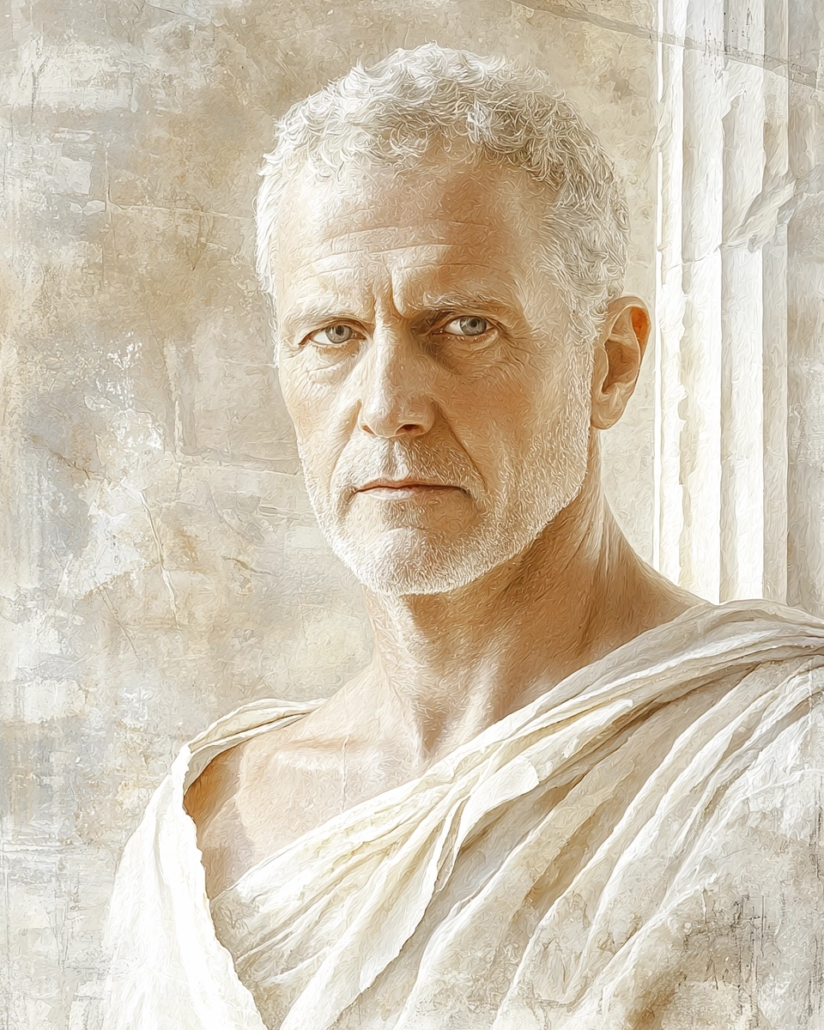Discover Lucan‘s Stoic Voice in Rome’s Civil War ✨
The Stoic Voice of Rome’s Civil War
Marcus Annaeus Lucanus (born c. 39 AD – died c. 65 AD), known simply as Lucan, was a prominent Roman poet with strong Stoic influences. Although not a philosopher in the traditional sense, his work reflects key Stoic values, particularly in his epic poem, Pharsalia, which chronicles the Roman civil war between Julius Caesar and Pompey. Lucan’s writings underscore Stoic themes such as resilience, self-control, and the dangers of unchecked ambition.
Historical Context and Influence
Lucan was born into a distinguished Roman family; his uncle, Seneca the Younger, was a noted Stoic philosopher and advisor to Emperor Nero. Lucan’s poetic masterpiece, Pharsalia, highlights his disillusionment with the autocratic rule of the Roman Empire. By focusing on the futility of political power and the internal struggles of his characters, Lucan weaves Stoic ideas into his narrative, showing that true power lies in self-mastery, not political conquest. Deepen: Britannica
Why are his teachings and views so valuable?
Though primarily known as a poet, Lucan’s themes resonate with Stoic values that remain relevant today. His emphasis on *fortitude* in adversity and the *impermanence of power* offers timeless reflections on human resilience. Lucan’s work continues to inspire readers seeking deeper understanding of Stoic ideals within a turbulent world. Read more: Stoic Principles in Today’s World
Key Teachings
In Pharsalia, Lucan explores the destructive force of ambition and the ultimate futility of power struggles. His work suggests that inner strength and virtue are more enduring than external power. Through intense depictions of conflict, Lucan conveys a Stoic disdain for excess and advocates for the stoic path of temperance and moral integrity. Deepen: Wikipedia
Legacy
- “Lucan’s writings influenced not only poets but also later philosophers who saw in him a bridge between literature and Stoic philosophy.”
- “His critical views on power have inspired thinkers concerned with ethics and the dynamics of power.”
- “Through his poetic explorations, Lucan helped broaden the appeal of Stoicism, showing its relevance to the arts and public discourse.”
Cardinal Virtues Embodied by the Poet
- “Wisdom – evident in his critical insights on the limitations of power and fame.”
- “Courage – shown in his fearless portrayal of political ambition and its downfalls.”
- “Temperance – emphasized through his warnings against excess and ambition.”
- “Justice – reflected in his belief in the moral consequences of unchecked power.”
Quotes attributed to him
- “Man is the master of his fate only in mastering himself.”
- “Power and fame fade, but virtue endures forever.”
- “True freedom is not in what we possess, but in our self-control.”


